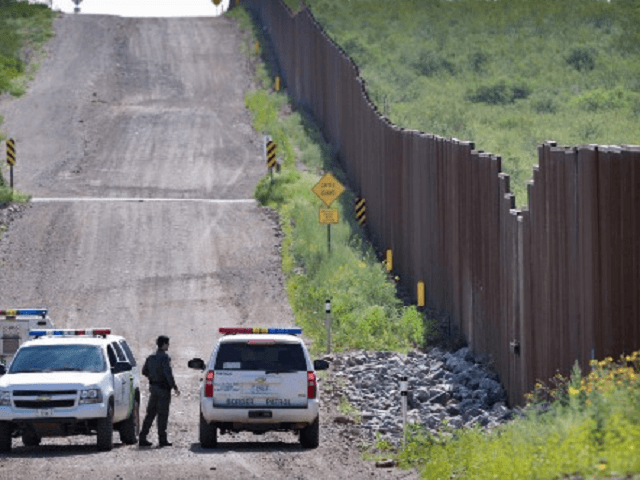The United States must guard against the flow of Islamic State (ISIS/ISIL)-linked foreign fighters across America’s borders, warned U.S. Defense Secretary Ash Carter.
Carter, speaking Monday at a forum sponsored by The Wall Street Journal, also said that the “most immediate danger” facing the U.S. are lone wolf style attacks inspired by ISIS and other terrorist groups.
In March, a top U.S. commander warned that ISIS could exploit the knowledge of human smuggling organizations in Latin America to infiltrate the United States.
When asked to comment on the ISIS threat to the U.S., Carter responded “We need to watch our borders for the foreign fighter flow.”
“We’ve been concerned about [the ISIS threat] since it started last summer because they say they have the aspiration to come here,” added Carter.
The U.S. is intent on destroying “ISIL in its heart of Iraq and Syria,” but it is also focused on “protecting our people, protecting our borders, working their finances, foreign fighters, lone wolves, the whole deal,” noted Carter.
Given that ISIS has expanded across the globe, including to the United States, it is not sufficient to simply combat the group in its home base of Iraq and Syria, declared the defense secretary.
“It is, because it metastasizes worldwide, including to our own country [that] we have to not only destroy it in its heart…that’s necessary but not sufficient,” he said.
The U.S. has to pursue the destruction of ISIS “around the world also,” he added.
Carter admitted that ISIS is better at avoiding detection by Western intelligence officials then previously thought, adding that the U.S. has to employ intelligence and surveillance methods to disrupt the jihadist group, in light of its extensive use of social media.
U.S. efforts against ISIS include strikes on oil infrastructure that the group uses to generate at least $1 million daily in illicit revenue, offensives against well-known members, as well as identifying and assisting capable and motivated forces to fight the terrorists on the ground, he said.
The Pentagon chief suggested that ISIS’ capability to carry out attacks is greater in Europe than in the United States, noting that Europe’s geographic location makes it easier for ISIS to smuggle fighters in.
“We don’t have some of the population that has longstanding terrorist inclinations that are in some of the European countries,” pointed out Carter. “So the most immediate danger we face is more of the ‘lone wolf’ style attacks.”
U.S. Southern Command commander, General John John Kelly, warned lawmakers in March that ISIS could enter the U.S. through Latin America.
ISIS in Syria has attracted roughly 100 foreign fighters from the Caribbean who could easily infiltrate the U.S. when they return, the top U.S. military commander in Latin America said at the time.
“I would suspect they’ll get good at, while they’re in Syria, get good at killing and pick up some real job skills in terms of explosives and beheadings and things like that,” he said. “And everyone’s concerned, of course, if they come home. Because if they went over radicalized one would suspect they’ll come home at least that radicalized.”
“Last year, ISIS adherents posted discussions on social media calling for the infiltration of the U.S. southern border,” he added. “Thankfully, we have not yet seen evidence of this occurring, but I am deeply concerned that smuggling networks are a vulnerability that terrorists could seek to exploit.”
Latin American countries lack the capability to track Islamic terrorists, noted the general, adding that Sunni groups such as ISIS could move across the region without impediment.
Gen. Kelly also revealed that Sunni extremists are radicalizing converts and other Muslims in Latin America.
“Partner nation officials throughout the region have expressed concern over the increasing number of suspected Islamic extremists from the hemisphere who are traveling to Syria to participate in jihad,” he told lawmakers. “Some take part in military and weapons training before departing; last year 19 Trinidadian Muslims were detained in Venezuela for conducting training with high-powered weapons.”
“When these foreign fighters return, they will possess operational experience, ties to global extremists, and possible intent to harm Western interests—and they will reside in a region rife with smuggling routes that lead directly and easily into the United States,” he added.

COMMENTS
Please let us know if you're having issues with commenting.